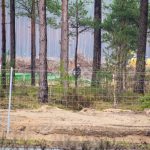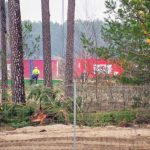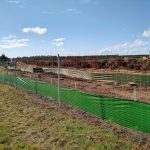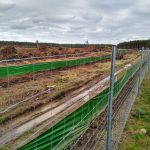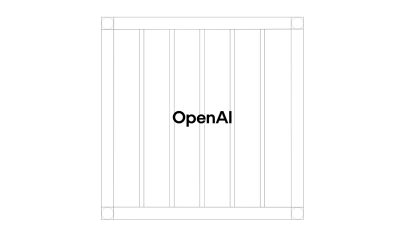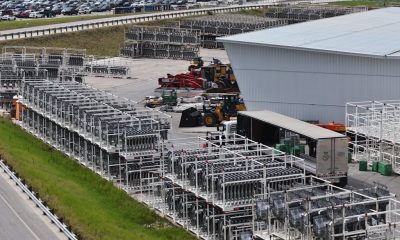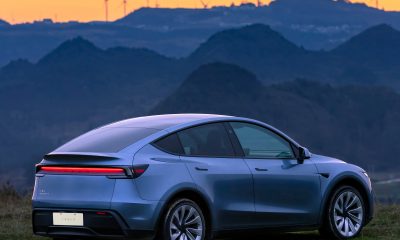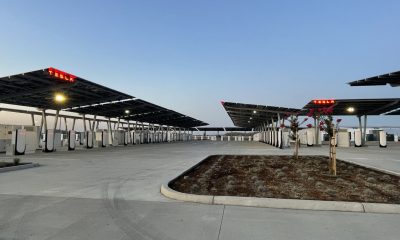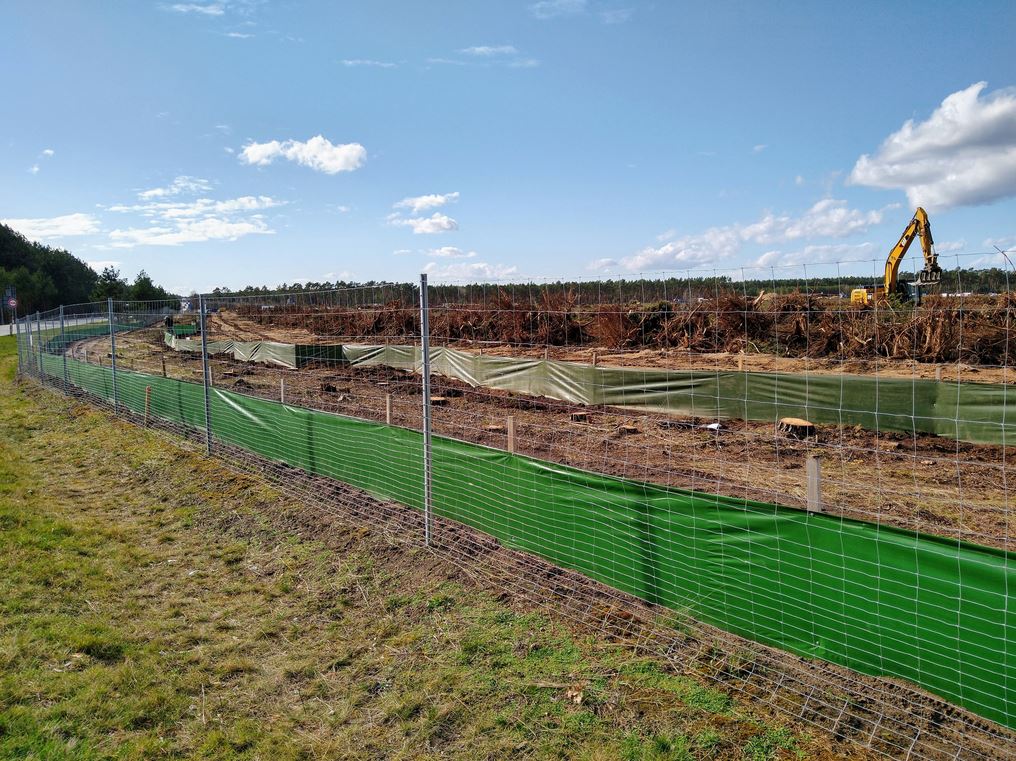

News
Tesla Giga Berlin installs reptile fences to protect endangered sand lizards
Tesla installed reptile fences in the Grunheide industrial property to protect lizards from migration to the Giga Berlin construction site.
As of Thursday, a double fence has been erected on the south side of the Tesla forest to protect reptiles and other animals that might cross from the nearby woods. Aside from protecting the lizards from being accidentally harmed at the construction site, sand lizards are also protected by European and construction sites must hire experts to catch each animal by snaring them and then resettling them to another location. The relocation of each sand lizard may cost up to 4,000 euros or roughly $4,500. Railway officials in Germany recently spent 15 million euros to relocate sand lizards from a transport hub in Stuttgart.
Tesla enthusiast Tobias Lindh shared on Twitter images of the completed barrier.
- Giga Berlin Reptile Fence (Source: Tobias Lindh | Twitter)
- Giga Berlin Reptile Fence (Source: Tobias Lindh | Twitter)
- Giga Berlin Reptile Fence (Source: Tobias Lindh | Twitter)
- Giga Berlin Reptile Fence (Source: Tobias Lindh | Twitter)
They really make sure that no lizard enters #GigaBerlin pic.twitter.com/cvhykRjLit
— Tobias Lindh (@tobilindh) March 12, 2020
GF4Tesla who has also been closely following the developments at the site of Tesla’s first Gigafactory in Europe, also shared on Twitter recent images taken at the site that show the enclosure that separates the build site from another portion of the forest.
#Speciesprotection 🤲
The reptile fence will be built on the south side of the site to prevent lizards🦎 and vipers🐍 from migrating to the GF4 site from the opposite woods.🌲🌲🌲 pic.twitter.com/1Js4kbqPyz— Gigafactory Berlin News (@Gf4Tesla) March 11, 2020
Earlier this week, the State Environment Agency in Brandenburg gave Tesla the green light to continue with the preparation works at the Giga Berlin construction site while the complete environmental permits are still pending. The approval means Tesla can now remove the topsoil and level the 92 hectares that have been cleared for the first phase of its construction.
The construction of the reptile fences is consistent with the environmental protection plan presented by Tesla to the Brandenburg government, concerned environmental groups, and local residents. During the construction of Giga Berlin, Tesla will resettle reptiles and other animals found in the site following the recommendations of experts in the country.
In addition to the protective fences to keep reptiles away, Tesla have also clearly marked areas where wood ant nests are located. The wood ants are also tagged as endangered species. The ant colonies should be first resettled before leveling those specific portions of the cleared Giga Berlin property.
Tesla can level the area now. The State Office for the Environment has issued the appropriate permit.
Bat trees must remain standing until the animals have left their winter quarters.
Even areas with wood ants' nests can only be levelled after the nests have been resettled. pic.twitter.com/gSRwA6xU9F— Gigafactory Berlin News (@Gf4Tesla) March 10, 2020
Trees with bats were also not uprooted to allow the animals to complete their winter hibernation. Experts assured concerned citizens that the engine noise, loud trucks, and noise created by chainsaws in the construction site will not be harmful to the bats. The endangered bats in the Grunheide forest started their hibernation in February and will likely last until the end of March as their mating season begins.
“You don’t have to worry about the animals. Bats are slowly waking up and leaving their winter accommodations,” said Peter Busse from the Working Group on Bats in Saxony-Anhalt who has been volunteering for the protection of animals for 40 years.
In January, Tesla CEO Elon Musk assured the public that Tesla will be built with sustainability and the environment in mind.
Giga Berlin / GF4 will absolutely be designed with sustainability and the environment in mind
— Elon Musk (@elonmusk) January 25, 2020
News
These Tesla, X, and xAI engineers were just poached by OpenAI
The news is the latest in an ongoing feud between Elon Musk and the Sam Altman-run firm OpenAI.

OpenAI, the xAI competitor for which Elon Musk previously served as a boardmember and helped to co-found, has reportedly poached high-level engineers from Tesla, along with others from xAI, X, and still others.
On Tuesday, Wired reported that OpenAI hired four high-level engineers from Tesla, xAI, and X, as seen in an internal Slack message sent by co-founder Greg Brockman. The engineers include Tesla Vice President of Software Engineering David Lau, X and xAI’s head of infrastructure engineering Uday Ruddarraju, and fellow xAI infrastructure engineer Mike Dalton. The hiring spree also included Angela Fan, an AI researcher from Meta.
“We’re excited to welcome these new members to our scaling team,” said Hannah Wong, an OpenAI spokesperson. “Our approach is to continue building and bringing together world-class infrastructure, research, and product teams to accelerate our mission and deliver the benefits of AI to hundreds of millions of people.”
Lau has been in his position as Tesla’s VP of Software Engineering since 2017, after previously working for the company’s firmware, platforms, and system integration divisions.
“It has become incredibly clear to me that accelerating progress towards safe, well-aligned artificial general intelligence is the most rewarding mission I could imagine for the next chapter of my career,” Lau said in a statement to Wired.
🚨Optimistic projections point to xAI possibly attaining profitability by 2027, according to Bloomberg's sources.
If accurate, this would be quite a feat for xAI. OpenAI, its biggest rival, is still looking at 2029 as the year it could become cash flow positive.💰 https://t.co/pE5Z9daez8
— TESLARATI (@Teslarati) June 18, 2025
READ MORE ON OPENAI: Elon Musk’s OpenAI lawsuit clears hurdle as trial looms
At xAI, Ruddarraju and Dalton both played a large role in developing the Colossus supercomputer, which is comprised of over 200,000 GPUs. One of the major ongoing projects at OpenAI is the company’s Stargate program,
“Infrastructure is where research meets reality, and OpenAI has already demonstrated this successfully,” Ruddarraju told Wired in another statement. “Stargate, in particular, is an infrastructure moonshot that perfectly matches the ambitious, systems-level challenges I love taking on.”
Elon Musk is currently in the process of suing OpenAI for shifting toward a for-profit model, as well as for accepting an investment of billions of dollars from Microsoft. OpenAI retaliated with a counterlawsuit, in which it alleges that Musk is interfering with the company’s business and engaging in unfair competition practices.
Elon Musk confirms Grok 4 launch on July 9 with livestream event
News
SpaceX share sale expected to back $400 billion valuation
The new SpaceX valuation would represent yet another record-high as far as privately-held companies in the U.S. go.

A new report this week suggests that Elon Musk-led rocket company SpaceX is considering an insider share sale that would value the company at $400 billion.
SpaceX is set to launch a primary fundraising round and sell a small number of new shares to investors, according to the report from Bloomberg, which cited people familiar with the matter who asked to remain anonymous due to the information not yet being public. Additionally, the company would sell shares from employees and early investors in a follow-up round, while the primary round would determine the price for the secondary round.
The valuation would represent the largest in history from a privately-owned company in the U.S., surpassing SpaceX’s previous record of $350 billion after a share buyback in December. Rivaling company valuations include ByteDance, the parent company of TikTok, as well as OpenAI.
Bloomberg went on to say that a SpaceX representative didn’t respond to a request for comment at the time of publishing. The publication also notes that the details of such a deal could still change, especially depending on interest from the insider sellers and share buyers.
Axiom’s Ax-4 astronauts arriving to the ISS! https://t.co/WQtTODaYfj
— TESLARATI (@Teslarati) June 26, 2025
READ MORE ON SPACEX: SpaceX to decommission Dragon spacecraft in response to Pres. Trump war of words with Elon Musk
SpaceX’s valuation comes from a few different key factors, especially including the continued expansion of the company’s Starlink satellite internet company. According to the report, Starlink accounts for over half of the company’s yearly revenue. Meanwhile, the company produced its 10 millionth Starlink kit last month.
The company also continues to develop its Starship reusable rocket program, despite the company experiencing an explosion of the rocket on the test stand in Texas last month.
The company has also launched payloads for a number of companies and government contracts. In recent weeks, SpaceX launched Axiom’s Ax-4 mission, sending four astronauts to the International Space Station (ISS) for a 14-day stay to work on around 60 scientific experiments. The mission was launched using the SpaceX Falcon 9 rocket and a new Crew Dragon capsule, while the research is expected to span a range of fields including biology, material and physical sciences, and demonstrations of specialized technology.
News
Tesla Giga Texas continues to pile up with Cybercab castings
Tesla sure is gathering a lot of Cybercab components around the Giga Texas complex.

Tesla may be extremely tight-lipped about the new affordable models that it was expected to start producing in the first half of the year, but the company sure is gathering a lot of Cybercab castings around the Giga Texas complex. This is, at least, as per recent images taken of the facility.
Cybercab castings galore
As per longtime drone operator Joe Tegtmeyer, who has been chronicling the developments around the Giga Texas complex for several years now, the electric vehicle maker seems to be gathering hundreds of Cybercab castings around the factory.
Based on observations from industry watchers, the drone operator appears to have captured images of about 180 front and 180 rear Cybercab castings in his recent photos.
Considering the number of castings that were spotted around Giga Texas, it would appear that Tesla may indeed be preparing for the vehicle’s start of trial production sometime later this year. Interestingly enough, large numbers of Cybercab castings have been spotted around the Giga Texas complex in the past few months.
Cybercab production
The Cybercab is expected to be Tesla’s first vehicle that will adopt the company’s “unboxed” process. As per Tesla’s previous update letters, volume production of the Cybercab should start in 2026. So far, prototypes of the Cybercab have been spotted testing around Giga Texas, and expectations are high that the vehicle’s initial trial production should start this year.
With the start of Tesla’s dedicated Robotaxi service around Austin, it might only be a matter of time before the Cybercab starts being tested on public roads as well. When this happens, it would be very difficult to deny the fact that Tesla really does have a safe, working autonomous driving system, and it has the perfect vehicle for it, too.
-

 Elon Musk1 week ago
Elon Musk1 week agoTesla investors will be shocked by Jim Cramer’s latest assessment
-

 News2 weeks ago
News2 weeks agoTesla Robotaxi’s biggest challenge seems to be this one thing
-

 Elon Musk1 day ago
Elon Musk1 day agoElon Musk confirms Grok 4 launch on July 9 with livestream event
-

 News2 weeks ago
News2 weeks agoWatch the first true Tesla Robotaxi intervention by safety monitor
-

 News5 days ago
News5 days agoTesla Model 3 ranks as the safest new car in Europe for 2025, per Euro NCAP tests
-

 Elon Musk2 weeks ago
Elon Musk2 weeks agoA Tesla just delivered itself to a customer autonomously, Elon Musk confirms
-

 Elon Musk2 weeks ago
Elon Musk2 weeks agoxAI welcomes Memphis pollution results, environmental groups push back
-

 Elon Musk2 weeks ago
Elon Musk2 weeks agoElon Musk confirms Tesla Optimus V3 already uses Grok voice AI

